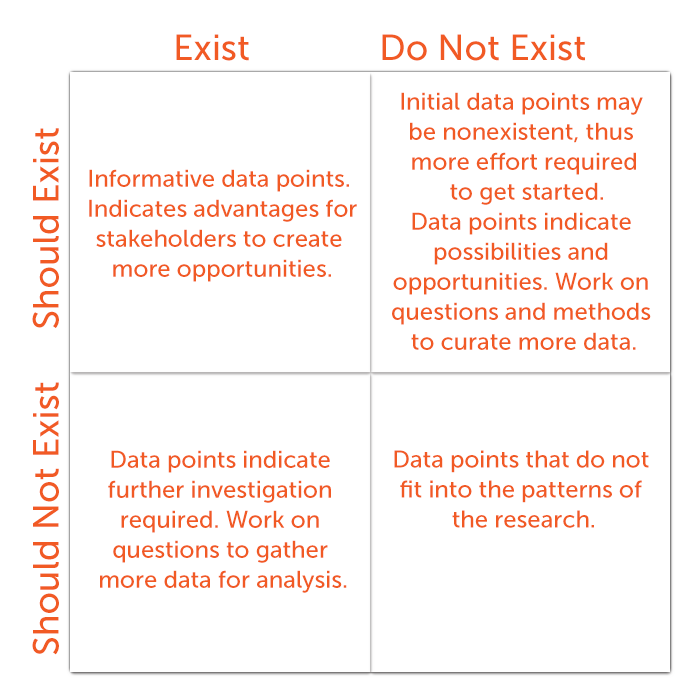What is the sexiest job of this century? (Hint: think big data and data science). D.J. Patil, the guy who coined the term “data scientist” back in 2008, along with Thomas Davenport, called data scientist the sexiest job of the 21st century (source: Harvard Business Review).
The job is nothing new before the title became a hype, many people were already analyzing high volumes of data to translate it into useful information. These people probably carry the title ‘data analysts’. Today, data analysts and data scientists can discern their job scope clearer.
Regardless of the title, and apart from it being sexy, there are a lot of perks to dig into data science.
- Data science job is high in demand. In fact, by 2013, employment rate & opening for data scientist jobs in data industries grew about 21% since 2003 (source: www.entrepreneur.com).
- Data scientist gets paid highly. The average data scientist salary in IT is about US$93 thousand per year, and it can range up to US$130 thousand per year (source: www.payscale.com).
- Data scientists are happy with their job. Almost 79% of respondents are satisfied in their job despite the challenges they face because they are creating values and making an impact. (source: CrowdFlower Data Scientist Survey)
What is Data Scientist?
If you have been following my blog, you would already know what a data scientist really do.
Anyway, many companies are struggling with petabytes of data that comes in volumes and varieties. The executive team needs to make logical sense of the big data for critical business strategy.
In other words, organizations need data scientists to take the enormous mass of messy data points and use their math, statistics and programming skills to process, clean, manipulate and organise them. Then, the data scientists are expected to apply their analytical skills (acquired through industry knowledge, contextual understanding, and assumptions) to find solutions to business challenges or opportunities.
The demand for such individuals with the ability to perform such formidable skills and ability to predict the growth, trends and business insights is high.
From the academic perspective, I’m sure you are already aware or learning the skills required to be a good data scientist in your domain of interest, i.e. matrix factorization, distributed computing, statistical analysis, machine learning, algorithms and data structures, and whatnots. Or you may have stumbled on data scientist without specifically learning data science, just like myself.
That’s good! But, are you are ready to be great? Let’s take a fresh perspective and explore the traits of a data scientist that will not just get your foot in the door, but makes you a great data scientist.
What does it take to be a great data scientist?
So what it takes to go from good to great as a data scientist? Here are my 8 tips to achieve greatness.
1. Have insatiable intellectual curiosity and raw inquisitiveness
A good data scientist takes the request, process the data, implement it, and deliver the analysis confidently.
However, to differentiate yourself and be the elite in data science, you will need to take a step further. Having an insatiable curiosity is often the key to push yourself further. To be great, you will ask for more data or even put yourself out there to discover new data.
For instance, you may want to talk to users, interview stakeholders or curate new source of data that will make your analysis and predictions superior.
Have a constant pursuit of learning. Be inquisitive. Listen to your inner voice. Ask questions. And never fear that you might be asking stupid questions. I have been stressing a lot about asking questions and the importance of it.
If you are unsure where to begin, you can use my Question Matrix, which I have been sharing in some of my classes. I’ve created this matrix, which was inspired by Professor Henry Lee Chang-Yu, to help data scientists to formulate questions about a research topic.

The data scientist question matrix
The matrix is a good starting point. The application is a whole new topic by itself, so stay tuned to our blog for the release of the article on how you can use the question matrix in your research.
2. Technical acuity with the spirit of a hacker

Make coding an everyday habit and always try new tools & languages.
Technical flexibility and experience play a significant role in the world of data science where standards change at an alarming rate. If you are new to the industry, don’t worry.
A hacker’s spirit will keep you going and keep up to the speed of the demand.
Code every day, if possible. Try out new techniques, tools and languages. Discover codes you’ve never work with. Break it. It will come handy when you couldn’t get the right tools to solve your data problems.
Share your knowledge and discovery with your fellow data scientists and learn together.
3. Keep your statistical thinking sharp
To be a great data scientist you have to have a sharp mind towards quantitative thinking.
Being good in data science makes you shrewd in modeling any data given to you. You are equipped with all sorts of algorithms to implement and statistically obtain predictions and recommendations.
However, to be a great data scientist, you have to be able to sense what is different in your results, or something not right or ‘off’, because that little sharp observation could be the game-changing insights your stakeholders need.
To hone your statistical thinking, constantly play around with data and study the trends. For instance, get your fellow data scientists together and play the little game of discovering the number of “actually” being said in a series of Ted Talks videos.
4. Ability to use multimodal communication skills

Communication is an important skill a data scientist needs. Without good communication skills, nobody would understand your data study.
Good data scientists produce results.
They turn large volumes of data into information. However, to laymen, the results will probably appear as mere rows and columns of numbers and values to them. It makes no sense to people from different backgrounds or stakeholders who are looking for particular insights.
A great data scientist can process, interpret and create sense out of the results for the right people. It’s quite common for scientists to find it difficult to make the rest of the world understand their analytical results.
To overcome this, you should reach out to people outside the scope and share your projects with them. Learn from their feedback and iterate the way you communicate the results. Practice sketches, data visualizations and infographics to build your visual communication skills.
5. Creativity in multiple aspects
Being a good data scientist means having the ability to design solutions and skillfully communicate your results using easy-to-grasp reports and compelling visuals.
To be the best you need to excel in creative problem solving.
Often we’re tied down by loads of data, which may not be accessible or accurate at a point in time, and as a scientist, it’s alright to have the urge to prove every prediction with real data.
However, the world is not perfect.
Being creative requires you to be able to churn almost-accurate analysis, with limited resources and constrained schedule, for management to get started with a project. To do so, you will need to let go of judgment, think outside the box, invite questions, and cultivate an open-minded thinking culture among your peers.
6. Relentless perseverance and optimistic stubbornness
The journey of a scientist is full of challenges and roadblocks.
You are expected to be the guy who puts everything together and delivers clarity. Most of the time you are supposed to deliver on time with limited data and resources, as explained above.
And failures are common occurrences.
Great data scientists who survived the journey often are packed with grit. They have the ability to persevere through hardships and a surmountable optimistic stubbornness that differentiate them from good to great. They are comfortable with failures and have practical imperfectness.
You have to let go of perfectionism. Encourage yourself to accept quick-and-dirty ways to solve problems. Don’t be afraid to show any signs of weaknesses. Take constructive feedback and learn from it.
7. Ability to prioritize with impact-driven mindset

As with any businesses, from startups to large corporate, you’ll need relentless perseverance.
Perseverance and stubbornness is a double-edged sword. If you are unable to prioritize or know when enough is enough, there could be troubles boiling. One of the worst things about being relentless is you become too engrossed in analyzing everything and achieving everything.
The best data scientist focuses on what delivers the highest impact, knows when to stop and when to say no when necessary.
Focus on the objectives of your project and which relevant analysis will bring more impact. Everything else is just noise or something that you can put on a backburner. Learn to know when to say ‘no’ or stop where it is necessary. Overdoing will only waste your time and team resources.
8. Healthy dose of skepticism
Mistakes are common, especially when it involves big data. A good data scientist will deliver results with confidence, but a great data scientist often questions the results. They are constantly wary of any potential spurious results or wrong statistics.
Even if you do not have the domain expertise, you can learn it. Repeat your experiments (as required), have open discussions with peers, make your data and methods available for scrutiny, and evaluate feedbacks given by peers. Constantly ask yourself “why” and “how.”
Wrapping it up – Being a good data scientist
It is not easy to be a good data scientist, but it is even harder to be truly exceptional in the trade. However, I’m sure you are not put off by the challenges because ultimately that’s what you are passionate about. With the right skill-sets, you will become a good data scientist. To be a great data scientist, having the right mindset will set you apart from your peers.
I hope this post gave you some ideas on how to become a data scientist, so cultivate your way towards becoming an elite in data science.
I would love to hear about your journey towards becoming a great data scientists. Share your story by leaving your comments below as I’d love to hear about them.

